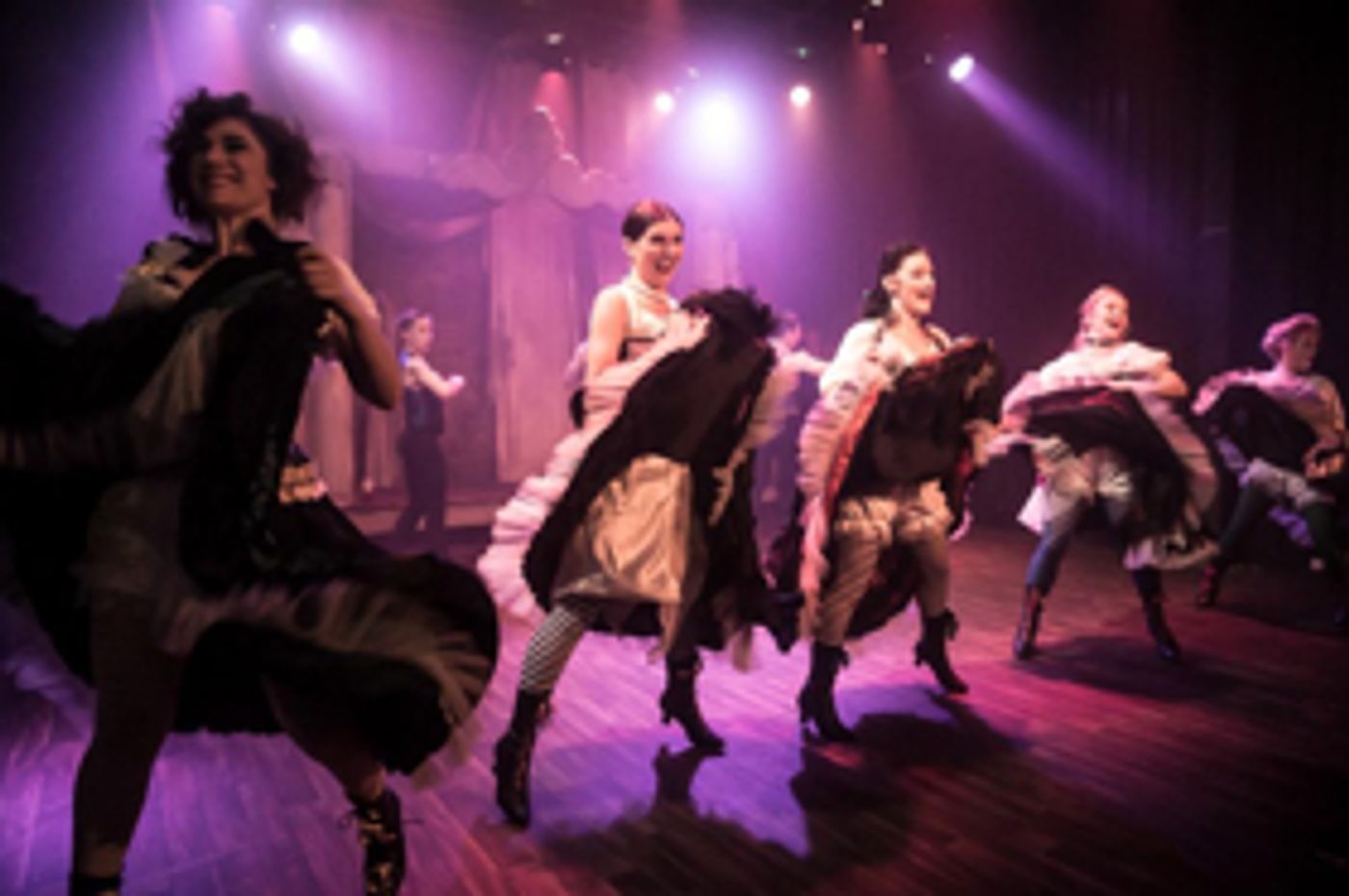Review: CAN-CAN!, Union Theatre

![]() In the programme, Phil Willmott, whose staging this is, makes something of a rod for his own back by writing, "...the librettos of Offenbach's Orpheus in the Underworld (which introduced the Can-Can dance) and Cole Porter's musical, Can-Can, never seem to work for modern theatre audiences."
In the programme, Phil Willmott, whose staging this is, makes something of a rod for his own back by writing, "...the librettos of Offenbach's Orpheus in the Underworld (which introduced the Can-Can dance) and Cole Porter's musical, Can-Can, never seem to work for modern theatre audiences."
Willmott's show (based loosely on the plot of Arthur Wing Pinero's comedy Trelawny of the 'Wells) is a bold attempt to square those circles, but the solution remains elusive.
We open on a couple of posh boy brothers (Christian and Cecil) outside the stage door of the Orpheus Theatre wherein Christian's fiancée, Jane, dances. He's there to whisk her away to his family pile, a house ruled with an iron fist by his banker father, for a trial period of observation, something his brother's wife, Margot, also had to endure.
Inevitably, after even sneezing is forbidden, Jane rushes back to her merry band of troupers and is later joined by Margot, who feels the gypsy blood rising. Can Christian defy his father and win Jane back? Will Jane ever put on her dancing shoes again after moping about for months? And will the evil patriarch's secret come out?
Well, what do you think?
Okay, if one sniped at predictability in musicals, there wouldn't be many left to enjoy, but Willmott never really grips the libretto problem he identifies. Surely the father with the decades-long grudge against all showbiz types would never have consented to Jane being "trialled" at all? Did all the characters have to be such familiar caricatures, from tarts with hearts to well-meaning servants to a pretension-busting aunt who pulls a few strings off-stage? Did the catastrophic failure of the bank have to be reported so glibly?
Pretty soon we know what roles everyone will play in the story and that makes us care less for the characters, as we more or less count down the stops on the Metro with them before they arrive back at their beloved Orpheus Theatre for "And The Show Must Go On".
We do care for the cast though, who turn the energy up to 11 in the opening number and keep it there all the way through to the finale (which you will have guessed). Choreographer, Adam Haigh, seems to expand the familiar dimensions of this theatre and the hoofers hoof with all their hearts.
They sing too. As the lovers. Kathy Peacock and Damjan Mrackovich, make a fine looking pair whose voices give full value to Rosa Lennox, going through plenty of instruments in providing the live music. (There is some pre-recorded orchestral stuff too, but that's rather less successful).
There's good work from PK Taylor as the veteran drag act, La Goulue, whose cynical lip can curl at the follies of youth, but whose pain is there for all to see. Perhaps we could have done without Le Pétomane performing his turn and both Jacques Offenbach and Henri de Toulouse-Lautrec are treated as window-dressing rather than the mighty figures they became. All three's involvement seems solely to underline the setting - something that doesn't need underlining.
The music is a bit of a hotchpotch from La Belle Époque, or thereabouts, with lyrics put to music that you've often heard before, but you can't quite place. Inevitably, tone is hard to maintain, with the score feeling somewhat bolted together. There are some very pleasant tunes well-sung though - and we can certainly hear the words, unlike at too many venues these days.
There is a musical to be made that draws on the sordid glamour of the 1890s, on the misfits suddenly embraced by the Establishment, on the precarious nature of lives (indeed of society as a whole) tumbling towards the cataclysms on The Somme and The Marne. But, for all the enthusiasm from first to last, this isn't it - more a case of Can't-Can't than Can-Can!
Can-Can! continues at the Union Theatre until 9 March.
Photo Scott Rylander.
Reader Reviews
Videos

